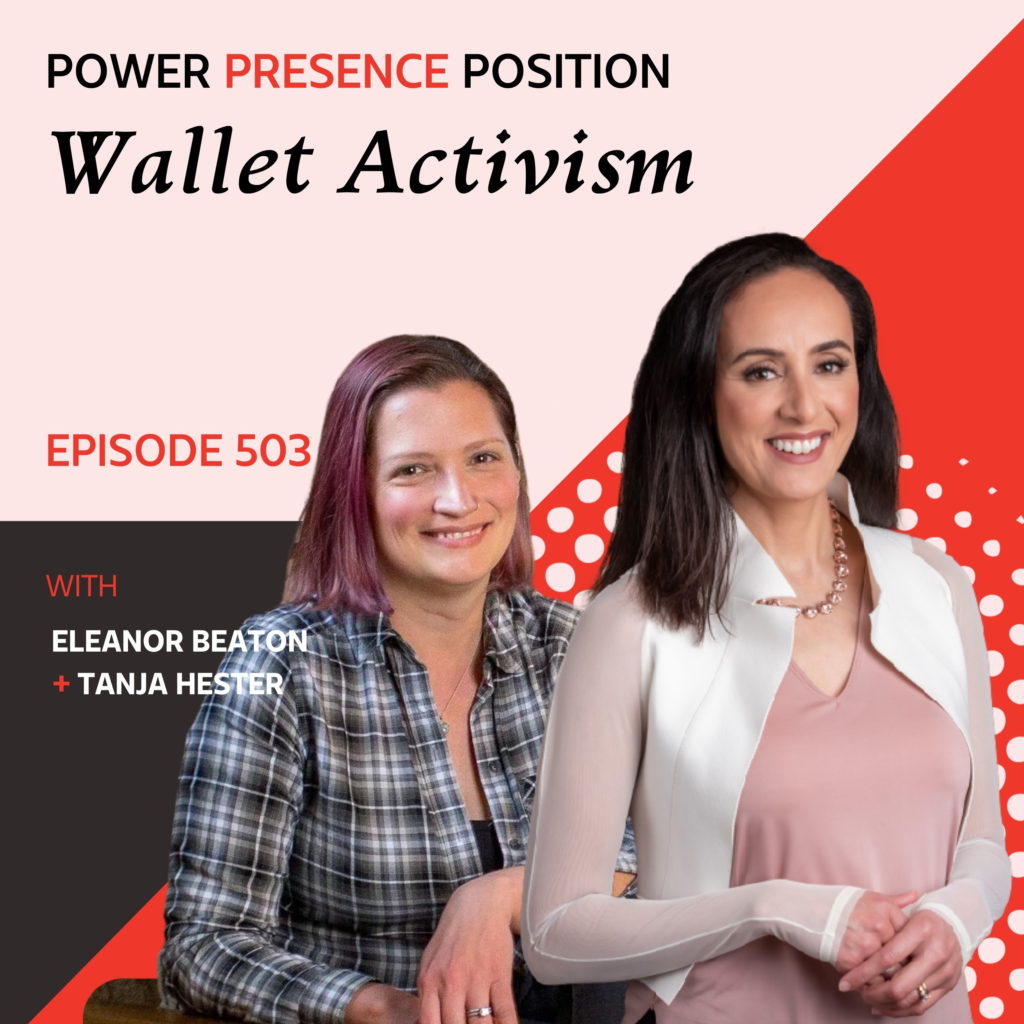Your money becomes a powerful force when you use it in a way that advances your mission, aligns with your values, and brings your vision to life. And this week, I have someone who is a living example of what’s possible when you’re intentional about how you generate wealth and use your money to advance the causes you believe in.
Tanja Hester has been featured in The Wall Street Journal, New York Times, and CNBC, just to name a few. As the author of Work Optional and Wallet Activism, she’s been widely recognized for her thought leadership in the area of wallet activism. She also spent a long career in political consulting until she retired in 2017 at the age of 38, and she’s offering her insights on her road to retirement on this episode too.
Join us this week as Tanja gives us the lowdown on wallet activism. She’s offering her deep well of wisdom on what wallet activism looks like, why it requires critical thinking and discernment on our parts, and how it’s truly a long-term, life-long project we all need to be on board with.
Today on the Power + Presence + Position Podcast:
- Tanja’s earliest memory of being a person who wants to make changes for the greater good.
- How Tanja retired at the age of 38 and made it so work is optional for her.
- Why wallet activism is truly a long-term, life-long project.
- What wallet activism means and how Tanja’s interest in it started.
- Why wallet activism isn’t just about spending.
Tanja’s thoughts on the problem with organic food. - What surprised her most about the themes that emerged in her research on wallet activism.
- The biggest shifts Tanja has made since embracing wallet activism.
- Why responsible banking is more important than you realize, and responsible investing is less important than you think.
Resources Mentioned:
- To receive weekly written gold in your inbox, make sure you sign up for my email newsletter.
- Connect with me on LinkedIn.
- Learn how to nail your niche, clarify your message, and scale your business in the Power + Presence + Position Business Accelerator!
- Learn how to build a seven-figure foundation in The Incubator.
- Get the free course, Selling with Story, here!
- Click here to apply for one of my programs.
- Tanja Hester: Website | Podcast | Instagram | Twitter
- Work Optional: Retire Early the Non-Penny-Pinching Way by Tanja Hester
- Wallet Activism: How to Use Every Dollar You Spend, Earn, and Save as a Force for Change by Tanja Hester
